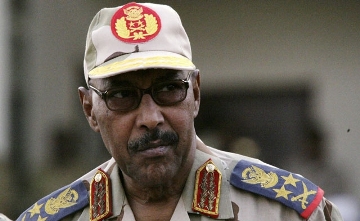Military cooperation with neighbouring countries protecting border: defence minister
May 5, 2014 (KHARTOUM) – Sudan’s defence minister says military cooperation agreements with neighbouring have largely contributed to the protection of borders and reinforced diplomatic relations.

He cited last week’s rescue operation of 600 illegal migrants implemented with the Libyan army, which conduct joint patrols in line with a military cooperation agreement signed by the two countries since the fall of the Gaddafi regime.
Hussein further said the recent developments in Central African Republic (CAR) impacted negatively the performance of the tripartite force with CAR and Chad.
However, he disclosed that contacts are taking place with the new government in Bangui to reactivate this tripartite force.
The political instability in CAR after the collapse of Francois Bozizé regime stopped the tripartite force. The operation is also affected by the latent tensions between the new regime in Bangui which blames Ndjamena of supporting the transitional regime of Michel Djotodia and his Seleka militia.
The minister also urged to raise the salaries of Sudanese soldiers and to increase the army budget, stressing that low salaries make the army less attractive for the new recruits.
He added that the recruits of the mandatory military service and the paramilitary forces of the Popular Defence Force are used to cover the shortage of troops.
Recently MPs demanded that the defence minister brief them on the military situation in the country generally and urged for more troops on the border with the Central African Republic.
The Sudanese army is deployed in South Kordofan, Blue Nile and Darfur region, plus many areas on the long border with South Sudan where Khartoum claims that the rebels are harboured.
Analysts agree that the heavy military budget, estimated at $ 4 billion impacts negatively the fragile Sudanese economy.
(ST)
